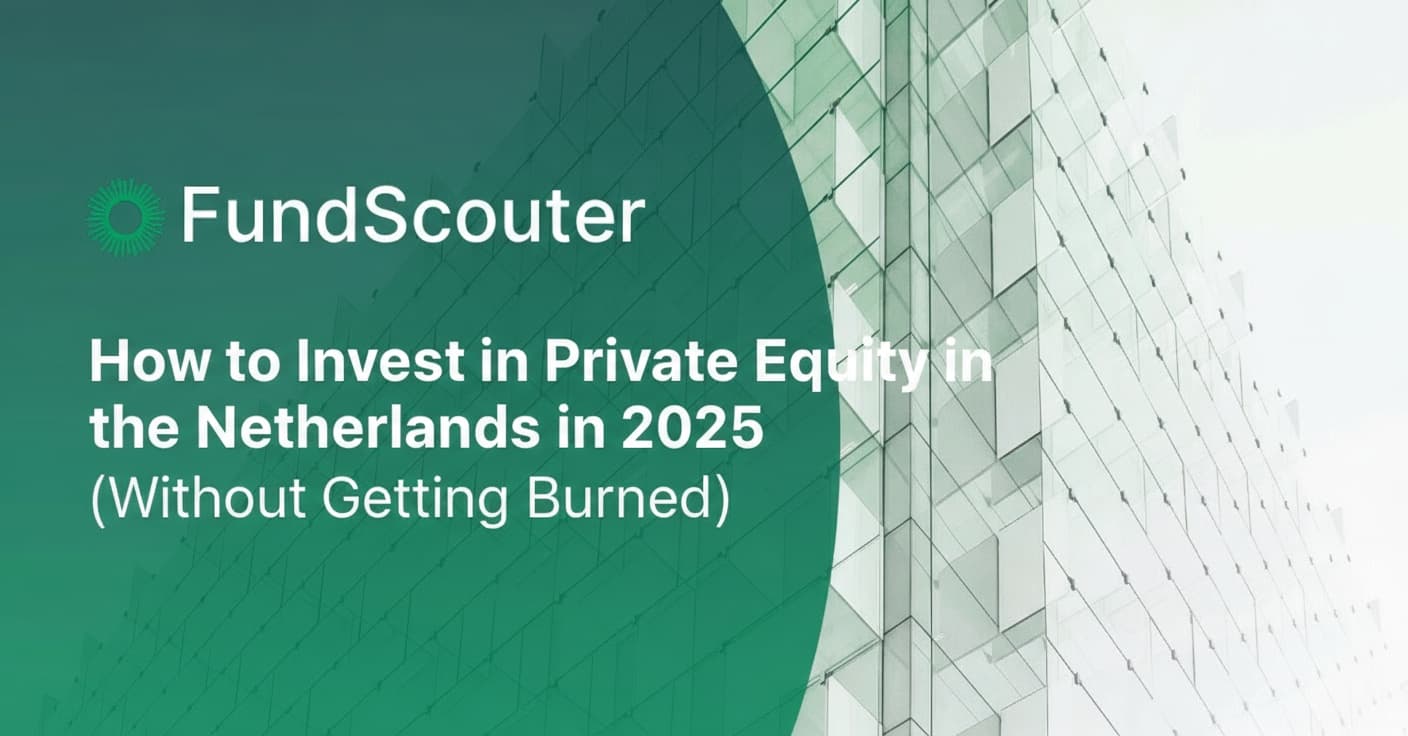The following guide explains how Dutch investors can participate in private equity investments during 2025 while protecting their capital.
The Rise of Private Equity for Dutch Investors
The Netherlands now allows retail investors to enter private equity markets through funds that require only €1 to €5,000 initial investments. The Netherlands now offers retail investors new investment possibilities through private equity which was previously restricted to institutional investors.
The FD article on private equity risks for retail investors shows that regulatory experts and academics have issued major warnings about this market expansion. The FD article shows Dutch investors need to understand problematic sales methods and investment fee systems before they invest their money. SEC official Caroline A. Crenshaw predicts a "high-speed collision" between unprotected retail investors and the market while Oxford professor Ludovic Phalippou calls it a "scandal in the making" that benefits sophisticated financial experts at the expense of unsophisticated investors.
Understand What You're Getting Into
Illiquidity Challenges
The fundamental requirement for Dutch investors to understand about private equity investments is their illiquid nature. Private equity funds require investors to lock their capital for 5-10 years because they cannot sell their investments quickly through public markets. The FD investigation shows that current exit opportunities remain at their lowest point in history which intensifies the illiquidity problem during the challenging market environment of 2025.
Complex Fee Structures
The FD article shows that private equity fees consist of multiple layers which result in annual costs exceeding 7% when all fees are combined. The total cost of private equity investments includes management fees and performance fees together with transaction expenses and trail commissions that remain undisclosed to investors. The German broker receives 1.4% annual retour provisies from Apollo while EQT gives 1.1% kickbacks to the same broker. The Dutch investment platforms Capler and Marktlink Capital present clear fee structures yet investors need to perform detailed assessments of their total investment expenses.

Spot the Red Flags
Unrealistic Return Promises
The FD investigation shows that Trade Republic and other providers make unrealistic return promises to investors by offering 12% "market target returns" and 10-15% net returns respectively. The projections made by providers depend on pre-2022 historical data from a period of ultra-low interest rates which might not accurately predict future investment outcomes. Investors need to be extremely cautious when providers make return guarantees that fail to disclose market dangers and economic patterns.
Hidden Kickback Arrangements
The FD article exposes disturbing evidence about fund managers who maintain secret payment systems with distribution platforms. The Trade Republic-Apollo agreement includes substantial recurring payments which generate direct conflicts of interest between the parties. The German consumer protection organization Stiftung Warentest describes these payment systems as "unclear" and possibly against European financial rules. Dutch investors need complete disclosure about all commission systems which impact their investment funds.
What to Look for Instead
Reputable Platforms with Transparency
Investors should choose platforms which maintain open financial disclosure and follow all relevant regulations instead of using aggressive sales tactics. Moonfare provides institutional-grade due diligence through its established platform which enables investors to access Moonfare Core III and Moonfare Secondary Fund. Fundscouter operates in the Netherlands to enable investors to evaluate multiple fund providers through side-by-side comparisons of their terms and strategies and access conditions.
Access to Institutional-Quality Funds
Investors should select platforms which provide access to experienced fund managers who demonstrate proven performance histories. The top private equity fund options for investors include Blackstone Private Equity Strategies (BXPE) and Ares Private Markets Fund (APMF) and Partners Group Global Value. The institutional-grade funds operated by these managers require minimum investments between €100,000 and €250,000 yet provide better risk management and more stable returns than untested fund-of-funds structures.
Investing from the Netherlands: Your Options
Established Dutch Players
Marktlink Capital stands as the leading Dutch investment firm because it has collected more than €2.5 billion from Dutch investors through six funds since 2021. The Marktlink PE fund V and Marktlink VC fund III provide Dutch investors with European and North American private equity access through management fees that amount to 0.9%. The company implements a co-investment model which enables them to invest directly with their funds to decrease costs for their investors.

New Platform Options
The Capler Private Equity Fund-of-Funds at Capler allows investors to start with a minimum investment of €5,000. The climate technology fund Carbon Equity Climate Tech Portfolio Fund III operates as a specialized investment vehicle. The €1 minimum investment at Trade Republic has gained popularity but FD research demonstrates that its high fees together with hidden charges make it unsuitable for small investors.
Alternative Investment Approaches
Dutch investors who want private market access with liquid investment options should look at LGT Capital Partners Semi-Liquid Private Equity Fund and Triodos Groenfonds (TGF) which offers sustainable projects with minimal entry requirements and clear investment details.
Best Practices for Dutch Investors
Capital Allocation Strategy
Your investment funds should only come from money that you can keep locked away for 5-10 years without compromising your financial security. The FD article demonstrates that early fund exits remain both costly and infrequent so investors need to develop effective capital management strategies. New investors should restrict their private equity investments to 5-10% of their entire investment portfolio.
Fee Comparison and Due Diligence
Investors should evaluate the complete fee structure of different investment funds and platforms before making their selection. Fundscouter serves as a resource to help investors evaluate management fees and performance fees and all associated costs. Investors should prioritize net returns after fees instead of focusing on projected gross performance numbers. The FD investigation demonstrates that stacked fees significantly affect long-term investment returns so investors need to conduct detailed cost assessments.
Diversification Strategies
Investors should distribute their capital across various funds or implement established fund-of-funds structures to minimize their exposure to risk. The Altix Alt.1 and Altix Alt.2 and Altix Alt.3 investment options distribute private equity fund exposure across 4 to 8 different funds which helps minimize concentration risk. Each private equity fund should be evaluated for its investment approach and geographic reach and sector focus to achieve proper spread of investments.
Private Equity Investment Requires Trustworthy Information Sources for Successful Navigation
Private equity serves as a valuable long-term diversification tool when investors approach it with caution according to the FD investigation which exposed "gold rush" schemes in the industry. The success of private equity investments depends on distinguishing authentic investment opportunities from promotional exaggerations while understanding all associated expenses and potential dangers.
Fundscouter serves as a vital resource for Dutch investors because it enables them to evaluate multiple private equity options through transparent comparison of their terms and minimum requirements and historical performance data. Investors should use analytical tools to make data-driven decisions instead of trusting aggressive marketing or unrealistic return claims.
Private equity investment opportunities now exist for Dutch investors who will invest capital for multiple years and tolerate illiquidity to gain portfolio diversification benefits. The path to success in private equity demands investors to choose proper platforms and conduct detailed fee assessments while adopting realistic return projections that match present market realities instead of past low-rate market performance.
